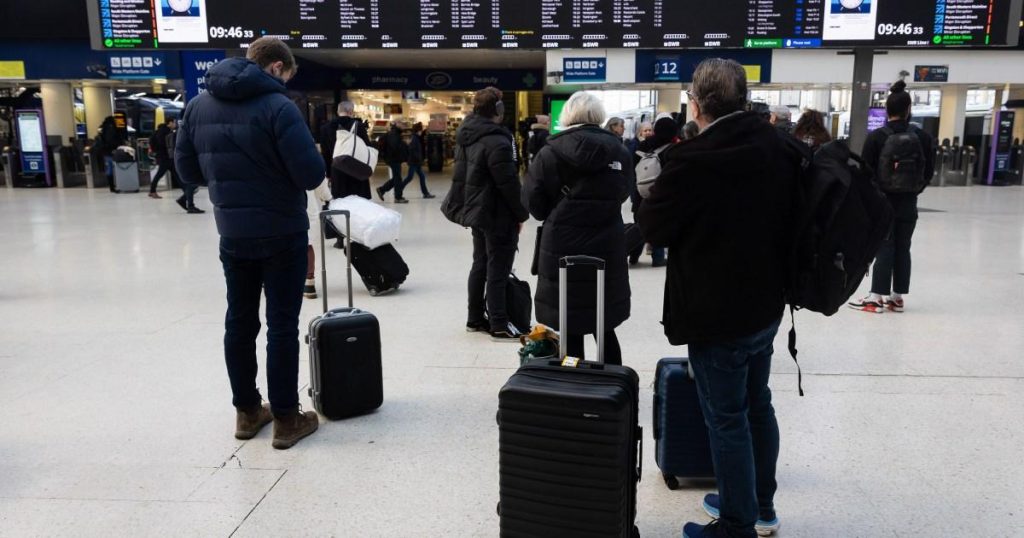The author recounts a frustrating Christmastime train journey from London to Gloucestershire, which serves as a microcosm of the broader dysfunction plaguing British society. The journey began with a conversation with a fellow passenger, Sandy, whose son was ill but faced seemingly insurmountable barriers to securing a GP appointment. This highlighted the first systemic failure: access to healthcare, a fundamental pillar of society, now perceived as unreliable and difficult to obtain. This encounter underscored the author’s growing sense that the British public has become resigned to a reality where essential services simply don’t function as expected.
The train journey itself became a further illustration of this dysfunction. James, another passenger, was burdened with an excessive amount of luggage due to his precarious housing situation in London. He epitomized the struggles of many young professionals grappling with an exorbitant and dysfunctional rental market, where competition is fierce for overpriced and poorly maintained properties. The author notes that, like the healthcare system, the housing market is another critical aspect of life that has become demonstrably broken, yet is accepted as an unfortunate reality. This acceptance of inadequacy, the author argues, is a dangerous symptom of a deeper societal malaise.
The author’s own experience further solidified this observation. The train station’s WiFi and charging stations were non-functional, a minor inconvenience that nonetheless contributed to the overall sense of things not working. Boarding the train proved a further ordeal, with overcrowding forcing many passengers to stand in aisles, a stark contrast to the empty seats in the first-class carriage. The conductor’s preemptive apology for potential delays further normalized the expectation of substandard service. The journey, plagued by unexplained delays and overcrowded carriages, became a testament to the inefficiency and lack of accountability that characterize the British rail system.
The culmination of the journey involved an unplanned detour and multiple delayed trains, culminating in a severely overcrowded train with insufficient carriages. This forced passengers to pay exorbitant fares to stand uncomfortably, while the first-class carriage remained conspicuously empty. The author, along with other frustrated passengers, eventually occupied the empty first-class seats, a small act of rebellion against a system that seemed designed to prioritize profit over passenger comfort. The reluctance of some passengers to join the “rebellion,” clinging to the rules despite the discomfort, further highlighted the ingrained acceptance of poor service.
The author reflects on the broader implications of this widespread acceptance of dysfunction. The five-and-a-half-hour journey, significantly longer than the anticipated two hours, became a symbol of the pervasive inefficiencies plaguing various sectors of British society. The high cost of train travel, coupled with the poor service, is presented as a prime example of how the public is routinely exploited by privatized services. The author argues that this resignation to substandard services, from trains to healthcare to housing, is a dangerous trend that threatens the future of the country. The normalization of dysfunction breeds complacency, hindering progress and allowing systemic issues to persist unchecked.
This resignation, the author contends, is antithetical to the message of self-help books that encourage acceptance of life’s challenges. While acceptance can be a valuable tool for personal well-being, accepting systemic failures like inaccessible healthcare, unaffordable housing, and unreliable public transportation only perpetuates the problems. The author challenges politicians and those in power to experience these everyday struggles firsthand, arguing that only then will they understand the urgency of the situation and be compelled to implement meaningful change. The author concludes with a call to action, urging readers to question what they accept and demand better from the systems that are meant to serve them. The anecdote of the train journey becomes a metaphor for the larger societal need to reject complacency and strive for improvement.


